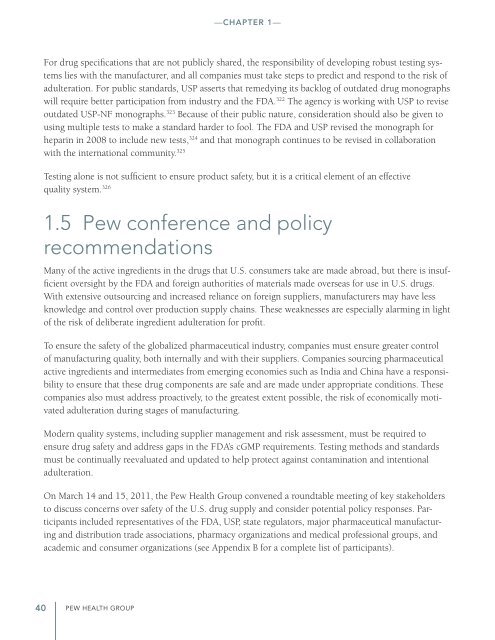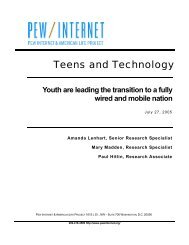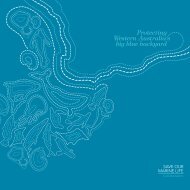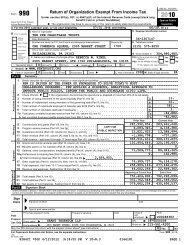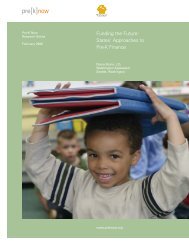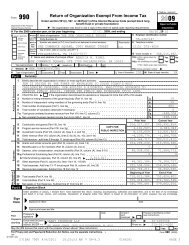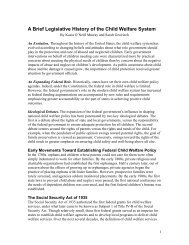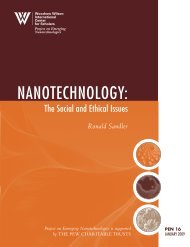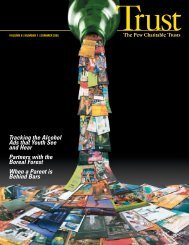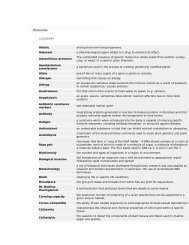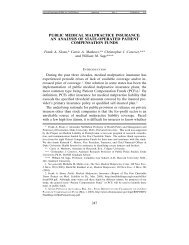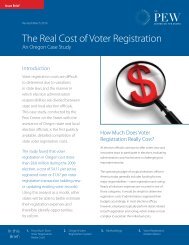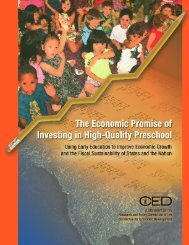After Heparin: - The Pew Charitable Trusts
After Heparin: - The Pew Charitable Trusts
After Heparin: - The Pew Charitable Trusts
You also want an ePaper? Increase the reach of your titles
YUMPU automatically turns print PDFs into web optimized ePapers that Google loves.
—Chapter 1—<br />
For drug specifications that are not publicly shared, the responsibility of developing robust testing systems<br />
lies with the manufacturer, and all companies must take steps to predict and respond to the risk of<br />
adulteration. For public standards, USP asserts that remedying its backlog of outdated drug monographs<br />
will require better participation from industry and the FDA. 322 <strong>The</strong> agency is working with USP to revise<br />
outdated USP-NF monographs. 323 Because of their public nature, consideration should also be given to<br />
using multiple tests to make a standard harder to fool. <strong>The</strong> FDA and USP revised the monograph for<br />
heparin in 2008 to include new tests, 324 and that monograph continues to be revised in collaboration<br />
with the international community. 325<br />
Testing alone is not sufficient to ensure product safety, but it is a critical element of an effective<br />
quality system. 326<br />
1.5 <strong>Pew</strong> conference and policy<br />
recommendations<br />
Many of the active ingredients in the drugs that U.S. consumers take are made abroad, but there is insufficient<br />
oversight by the FDA and foreign authorities of materials made overseas for use in U.S. drugs.<br />
With extensive outsourcing and increased reliance on foreign suppliers, manufacturers may have less<br />
knowledge and control over production supply chains. <strong>The</strong>se weaknesses are especially alarming in light<br />
of the risk of deliberate ingredient adulteration for profit.<br />
To ensure the safety of the globalized pharmaceutical industry, companies must ensure greater control<br />
of manufacturing quality, both internally and with their suppliers. Companies sourcing pharmaceutical<br />
active ingredients and intermediates from emerging economies such as India and China have a responsibility<br />
to ensure that these drug components are safe and are made under appropriate conditions. <strong>The</strong>se<br />
companies also must address proactively, to the greatest extent possible, the risk of economically motivated<br />
adulteration during stages of manufacturing.<br />
Modern quality systems, including supplier management and risk assessment, must be required to<br />
ensure drug safety and address gaps in the FDA’s cGMP requirements. Testing methods and standards<br />
must be continually reevaluated and updated to help protect against contamination and intentional<br />
adulteration.<br />
On March 14 and 15, 2011, the <strong>Pew</strong> Health Group convened a roundtable meeting of key stakeholders<br />
to discuss concerns over safety of the U.S. drug supply and consider potential policy responses. Participants<br />
included representatives of the FDA, USP, state regulators, major pharmaceutical manufacturing<br />
and distribution trade associations, pharmacy organizations and medical professional groups, and<br />
academic and consumer organizations (see Appendix B for a complete list of participants).<br />
40<br />
<strong>Pew</strong> Health Group


